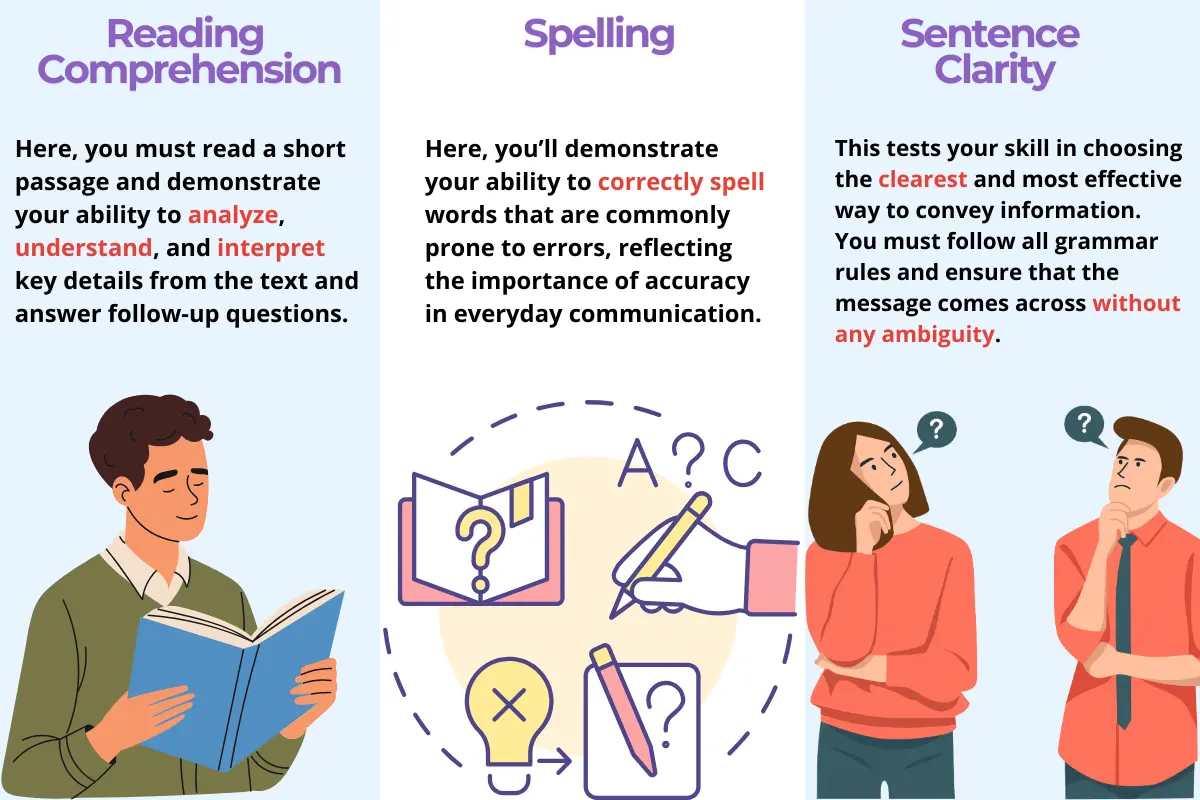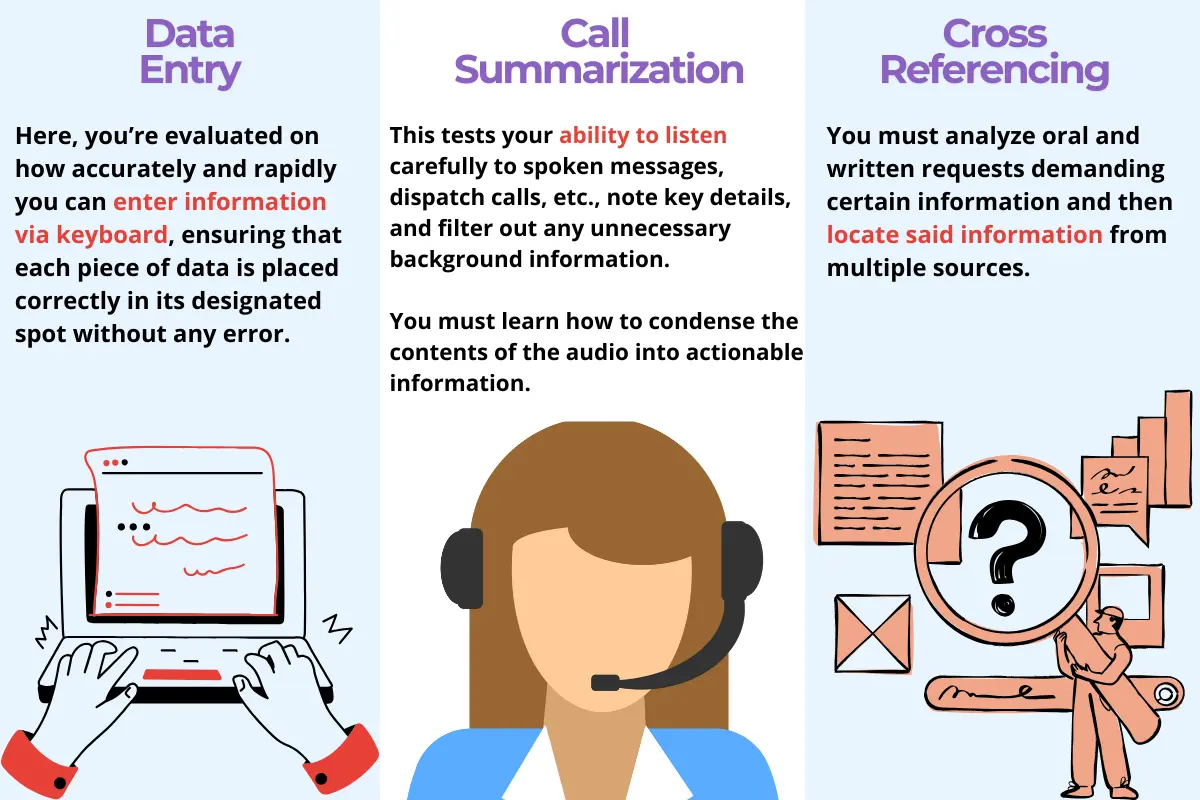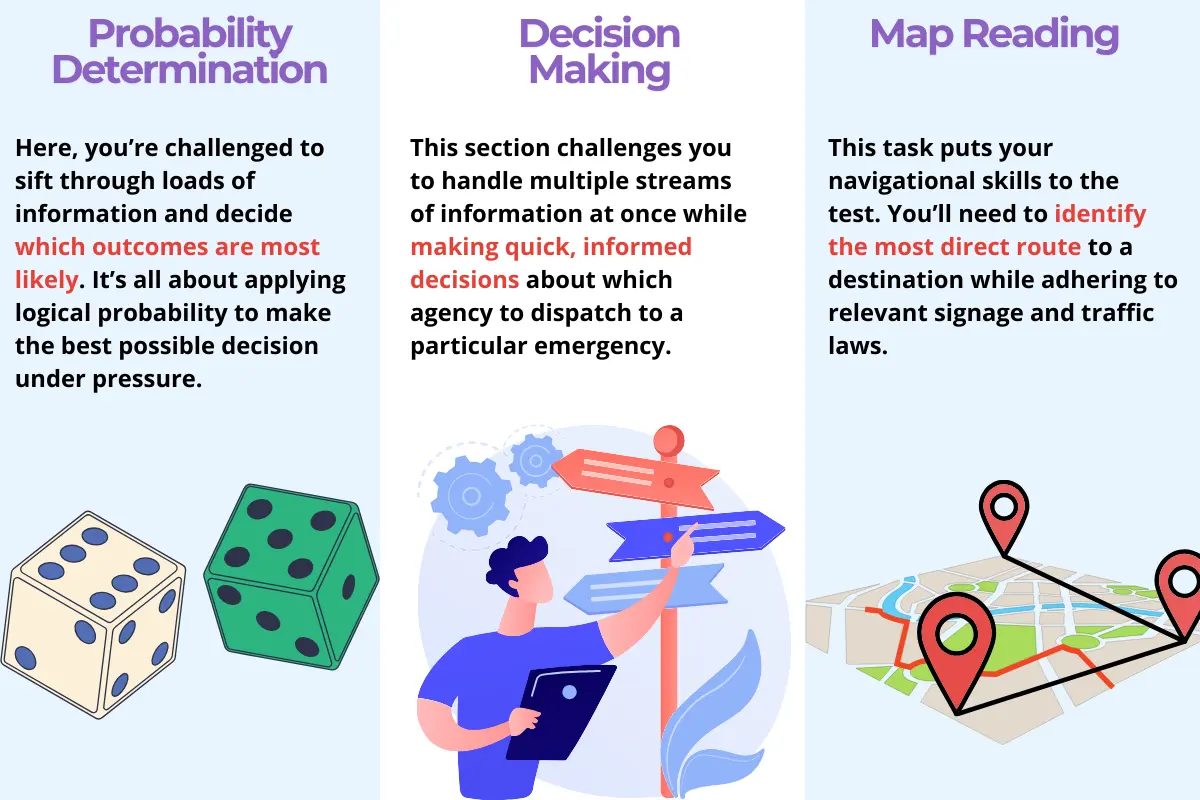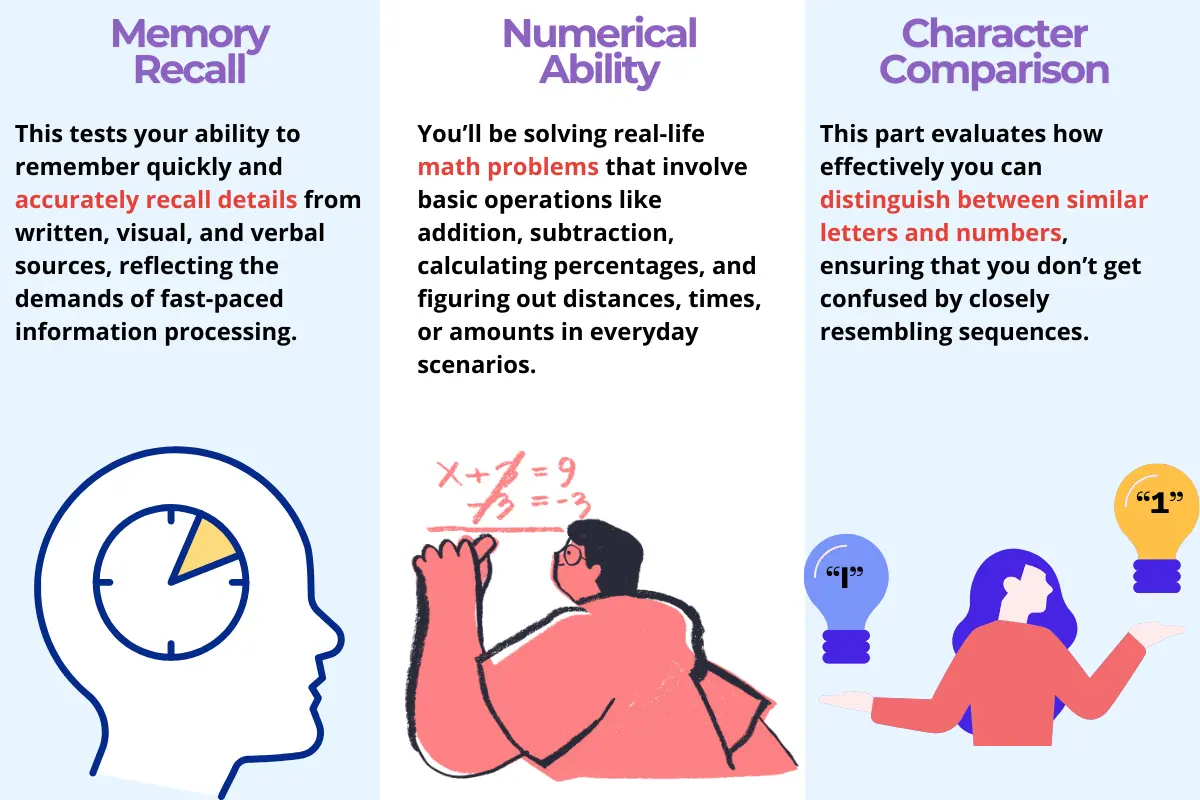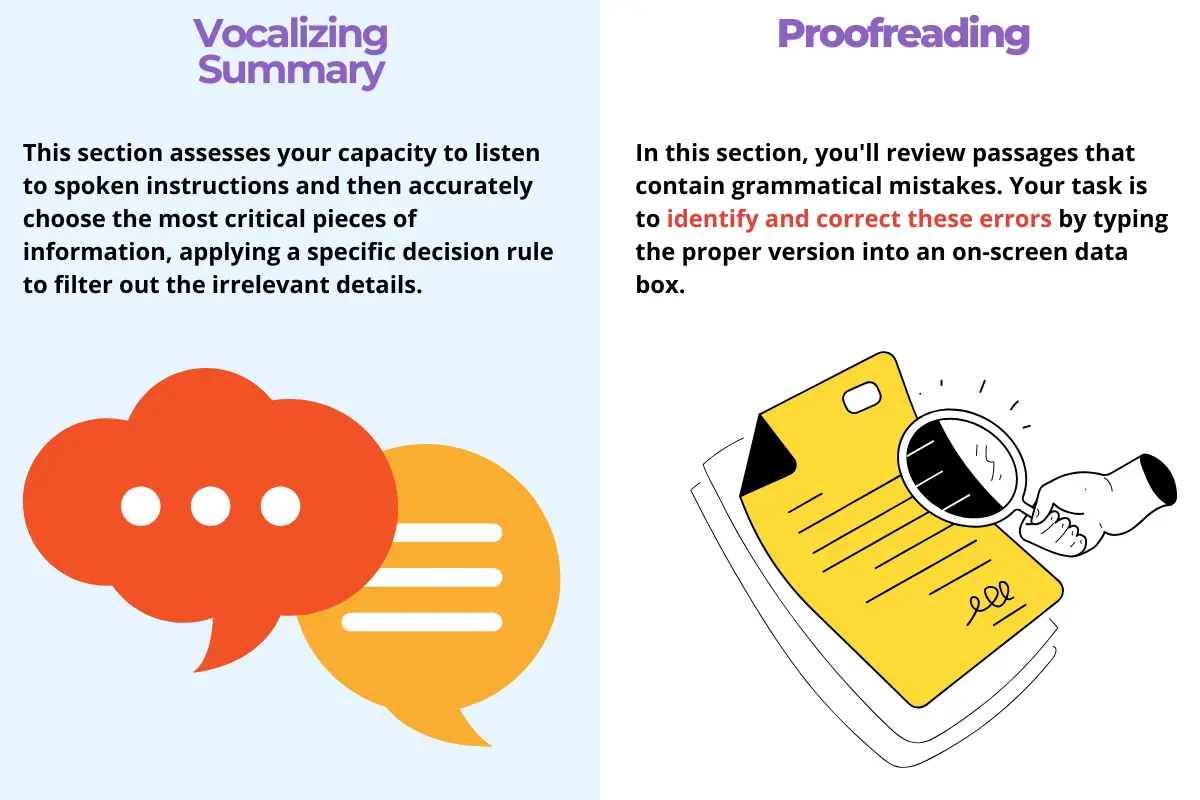Master the CritiCall Test in 2025 with CritiCall QuickPass™
- Overview
- Curriculum
- Test Challenges
- Reviews
Are you ready to answer the call? The CritiCall Dispatcher Test is far more than a routine exam—it’s a real-world audition for one of the most crucial jobs in public safety. Used by over 1,800 agencies (including 50% of State Police), passing CritiCall is your ticket to a rewarding career as a dispatcher, where every second truly counts.
But with razer-thin time limits, tricky question formats, and suffocating pressure to multi-task, it’s no surprise that around 80% of first-time test takers fall short.
That’s exactly why we built CritiCall QuickPass™—an all-in-one training system that mirrors the look, feel, and intensity of the real CritiCall exam.
From immersive test simulations to in-depth lessons crafted by a veteran dispatcher, CritiCall QuickPass arms you with the skills and confidence to excel under pressure, ace the test on your first try, and launch your future in emergency communications.
Ready to see how it all works? Keep reading to discover what the CritiCall Test entails, the unique challenges it presents, and why CritiCall QuickPass is your key to conquering them with ease.
What is the CritiCall Test?
The CritiCall Test is a computerized pre-employment exam that separates top-tier dispatch professionals from the rest. It checks if you have the job-specific skills & aptitude necessary to become a dispatcher.
What You Need to Know About the Test:
✅ Digital Test
CritiCall Dispatcher test is a computer-based assessment. It checks your cognitive (reading ability, listening skills, typing skills, etc.) and non-cognitive (personality, interview, etc.) skills to determine if you are the right fit as a dispatcher.
✅ Time-Sensitive Questions
Each test section is timed, right down to the very question. This reflects the urgency of a dispatcher’s day-to-day responsibilities, where seconds save lives.
✅ No One-Size-Fits-All
The CritiCall test replicates real-world dispatch scenarios, assessing over 20+ different skills. Depending on the organization conducting the test, they can choose from the following sections to create a CritiCall Test unique to them
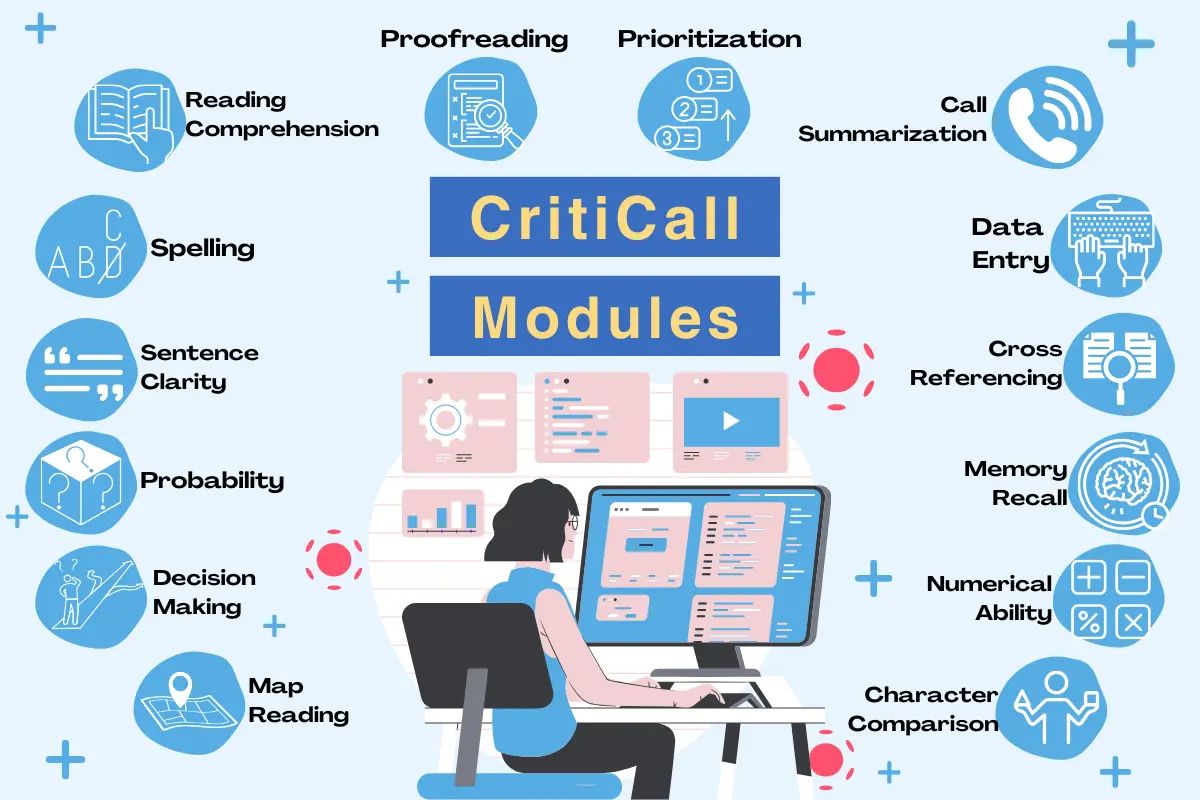
✅ No Retakes (for most agencies)
Failing the CritiCall test can mean waiting months before reapplying, depending on the agency’s policies. Many departments enforce strict waiting periods, making it crucial to prepare thoroughly before taking the test.
✅ Different Agencies, Different Scores
Passing scores differ across agencies, with some setting higher cutoffs than others. So, consistent practice across all sections is your safest bet.
So, if you’re serious about passing, practice is not optional—it’s crucial!
Success Stories
4.8 879 Reviews
rob, 16 Jan
Solid review course that covers the…
Solid review course that covers the relevant topics in good detail
chad, 11 Jan
Great Program, amazing practice simulations
Easy to understand. Passed tests on first time thru.
QUEEN RIGHTEOUS, 07 Jan
Highly recommended.Great instructional…
Highly recommended.Great instructional information. I passed on the first try.
MasterCommand, 14 Nov
Prepterminal. Prepare, practice, execute.
To say that Prepterminal helped me prepare and be ready for the testing phase would be an understatement. At first, looking at the course, I felt overwhelmed with the course material, but the course broke down each subject effectively which made it easier to understand. There were a few issues with some of the audio portion of the testing course, but beyond that, the course was well worth the money.
Leonora Golden, 13 Nov
This course definitely helped me pass the test!
This course definitely helped me prepare for the test. I was able to go into the test with an understanding of what I was going to be doing, and I passed the test! When I purchased the course, I was only one week out from actually going in for the test so I purchased the 1 week, however I wished I would have gone for the 3 months because it is a lot of information that they offer. I did email and ask if I could pay the extra $20 and extent to the 3 months but I was told that that was not possible. So, choose wisely. I did have some issues with the Audio exercises, but they did offer me 5 extra days for free. All with al I would recommend this course.
Becca Polich, 12 Nov
This was a great program to use before…
This was a great program to use before doing the CritiCall testing. It provided a wide variety of countless training modules in every subject you could imagine being on the real test. What I liked most about this program is that it provided a step by step module outline, or you had the option to skip ahead and work on your key tasks that you needed to exercise. Overall I think this training modules presents very similarly to the outline of the CritiCall testing and is well worth the money for the confidence it instills into you when you go do the testing for the job.

CritiCall QuickPass™
Last Updated: Mar 19, 2025
Course Content
-
 Intro to CritiCall 1 StepBuy this Course: Get full access to all lessons, practice tests and guides.
Intro to CritiCall 1 StepBuy this Course: Get full access to all lessons, practice tests and guides. -
 Multitasking Section 2 StepsBuy this Course: Get full access to all lessons, practice tests and guides.
Multitasking Section 2 StepsBuy this Course: Get full access to all lessons, practice tests and guides. -
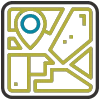 Map Reading Section 8 StepsBuy this Course: Get full access to all lessons, practice tests and guides.
Map Reading Section 8 StepsBuy this Course: Get full access to all lessons, practice tests and guides. -
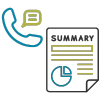 Call Summarization Section 7 StepsBuy this Course: Get full access to all lessons, practice tests and guides.
Call Summarization Section 7 StepsBuy this Course: Get full access to all lessons, practice tests and guides. -
 Memory Recall Section 7 StepsBuy this Course: Get full access to all lessons, practice tests and guides.
Memory Recall Section 7 StepsBuy this Course: Get full access to all lessons, practice tests and guides. -
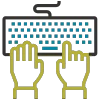 Data Entry Section 7 StepsBuy this Course: Get full access to all lessons, practice tests and guides.
Data Entry Section 7 StepsBuy this Course: Get full access to all lessons, practice tests and guides. -
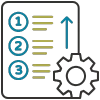 Prioritization Section 7 StepsBuy this Course: Get full access to all lessons, practice tests and guides.
Prioritization Section 7 StepsBuy this Course: Get full access to all lessons, practice tests and guides. -
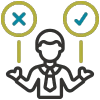 Decision Making Section 7 StepsBuy this Course: Get full access to all lessons, practice tests and guides.
Decision Making Section 7 StepsBuy this Course: Get full access to all lessons, practice tests and guides. -
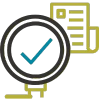 Proofreading Section 7 StepsBuy this Course: Get full access to all lessons, practice tests and guides.
Proofreading Section 7 StepsBuy this Course: Get full access to all lessons, practice tests and guides. -
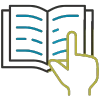 Reading Section 7 StepsBuy this Course: Get full access to all lessons, practice tests and guides.
Reading Section 7 StepsBuy this Course: Get full access to all lessons, practice tests and guides. -
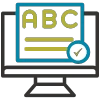 Spelling Section 7 StepsBuy this Course: Get full access to all lessons, practice tests and guides.
Spelling Section 7 StepsBuy this Course: Get full access to all lessons, practice tests and guides. -
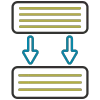 Sentence Clarity Section 7 StepsBuy this Course: Get full access to all lessons, practice tests and guides.
Sentence Clarity Section 7 StepsBuy this Course: Get full access to all lessons, practice tests and guides. -
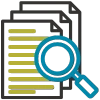 Cross Referencing Section 7 StepsBuy this Course: Get full access to all lessons, practice tests and guides.
Cross Referencing Section 7 StepsBuy this Course: Get full access to all lessons, practice tests and guides. -
 Character Comparison Section 7 StepsBuy this Course: Get full access to all lessons, practice tests and guides.
Character Comparison Section 7 StepsBuy this Course: Get full access to all lessons, practice tests and guides. -
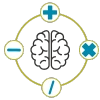 Numerical Ability Section 7 StepsBuy this Course: Get full access to all lessons, practice tests and guides.
Numerical Ability Section 7 StepsBuy this Course: Get full access to all lessons, practice tests and guides. -
 Probability Section 7 StepsBuy this Course: Get full access to all lessons, practice tests and guides.
Probability Section 7 StepsBuy this Course: Get full access to all lessons, practice tests and guides. -
 Personality Section 4 StepsBuy this Course: Get full access to all lessons, practice tests and guides.
Personality Section 4 StepsBuy this Course: Get full access to all lessons, practice tests and guides. -
 Hiring Steps - Background Screening 1 Step - 20 MinutesBuy this Course: Get full access to all lessons, practice tests and guides.
Hiring Steps - Background Screening 1 Step - 20 MinutesBuy this Course: Get full access to all lessons, practice tests and guides. -
 Hiring Steps - Polygraph Test 1 Step - 20 MinutesBuy this Course: Get full access to all lessons, practice tests and guides.
Hiring Steps - Polygraph Test 1 Step - 20 MinutesBuy this Course: Get full access to all lessons, practice tests and guides. -
 Hiring Steps - Medical Evaluation 1 Step - 20 MinutesBuy this Course: Get full access to all lessons, practice tests and guides.
Hiring Steps - Medical Evaluation 1 Step - 20 MinutesBuy this Course: Get full access to all lessons, practice tests and guides. -
 Hiring Steps - Psychological Evaluation 1 Step - 20 MinutesBuy this Course: Get full access to all lessons, practice tests and guides.
Hiring Steps - Psychological Evaluation 1 Step - 20 MinutesBuy this Course: Get full access to all lessons, practice tests and guides. -
 Hiring Steps - Dispatcher Interview 1 Step - 20 MinutesBuy this Course: Get full access to all lessons, practice tests and guides.
Hiring Steps - Dispatcher Interview 1 Step - 20 MinutesBuy this Course: Get full access to all lessons, practice tests and guides.
What Makes the CritiCall Test Unique?
Imagine the pressure of a live emergency call—every second counts, every decision matters. This is the reality of the CritiCall Test because instead of measuring academic knowledge, it thrusts you into a fast-paced, real-time dispatch environment. Complete with emergency pop-ups, continuous multi-tasking, and life-or-death decision-making.
It checks not just what you know but if you can apply that knowledge when every second counts. Here are some of the most common pitfalls for aspiring dispatchers:
Multisensory Challenges
From chaotic audio prompts to fast-changing visuals, the CritiCall Test engages multiple senses simultaneously. You’ll constantly switch between listening, reading, and typing—all with the clock ticking—revealing who truly has the resilience and focus to excel in a real dispatch center.
Audio Alerts
You must follow audio cues, rapid-fire instructions, and real-time dispatch call logs that demand split-second interpretation. Miss a single word in the chaos, and you could lose the correct answer—or face a domino effect of errors.

*Screenshot from our CritiCall QuickPass Course
Visual Puzzles
From complex maps and rapidly changing locations to layered visual data, you must quickly decode and act on a flood of information—often while another task is still on your screen. It’s a battle of speed vs. overload: can you interpret the visuals before time runs out?

*Screenshot from our CritiCall QuickPass Course
Textual Complexity
Detailed incident logs, missing item reports, and multi-step written instructions pile on the difficulty. It’s not just about scanning words or analyzing tables; it’s about extracting the right details quickly and accurately while juggling multiple information streams.
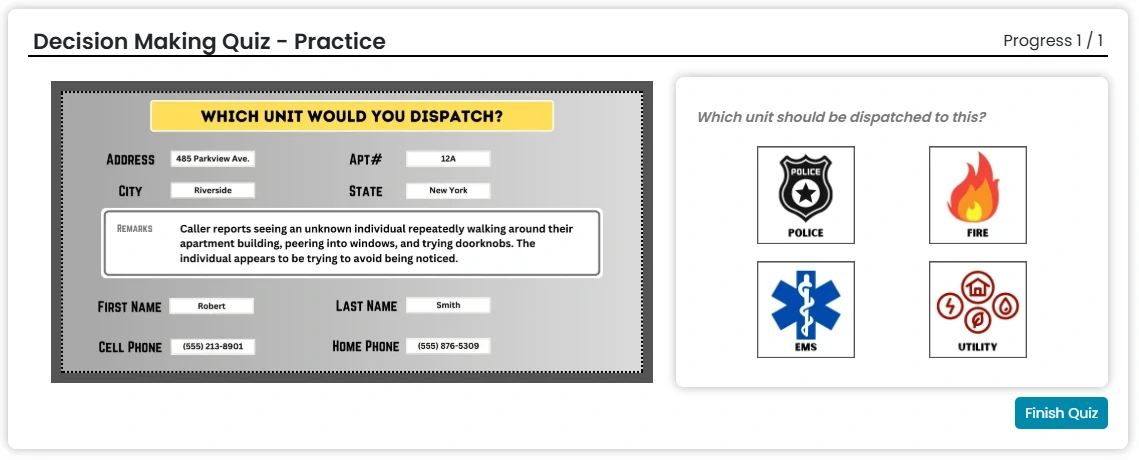
*Screenshot from our CritiCall QuickPass Course
Job-Specific Challenges
Extreme Multitasking
Emergency calls, pop-up alerts, rapid data entry—all happening at once. Pay attention to what you are hearing while you type exactly what you see on the screen. It’s more difficult than it sounds, and if you can’t transition seamlessly between tasks without losing accuracy, the exam (and the profession) will eat you alive.
Typing Speed & Accuracy Matters
Expect to uphold a minimum standard of 35 WPM with at least 95% accuracy. Lose your focus for a moment, and you’ll be playing catch-up or failing outright.
Real-Time Prioritization
The test hits you with overlapping emergencies, each screaming for immediate attention. You must decide which is most critical—often in seconds. A single misstep or hesitation here could cost you your chance to pass.
Relentless Time Pressure
In a real dispatch center, hesitation isn’t an option. Neither is it in the CritiCall Test. Each section is on a ticking clock that never shows mercy. Picture making life-altering decisions while the countdown timer relentlessly blinks in the corner of your screen—anxiety is inevitable, but your performance can’t falter.
To master these challenges, you need CritiCall QuickPass, a course created from scratch to cater to every demand of the CritiCall test. It comes equipped with detailed text and video lessons, exhaustive quizzes, and exclusive strategies to take you from a dispatch rookie to a dispatch pro! All from the comfort of your own home.
Success Stories
4.8 879 Reviews
rob, 16 Jan
Solid review course that covers the…
Solid review course that covers the relevant topics in good detail
chad, 11 Jan
Great Program, amazing practice simulations
Easy to understand. Passed tests on first time thru.
QUEEN RIGHTEOUS, 07 Jan
Highly recommended.Great instructional…
Highly recommended.Great instructional information. I passed on the first try.
MasterCommand, 14 Nov
Prepterminal. Prepare, practice, execute.
To say that Prepterminal helped me prepare and be ready for the testing phase would be an understatement. At first, looking at the course, I felt overwhelmed with the course material, but the course broke down each subject effectively which made it easier to understand. There were a few issues with some of the audio portion of the testing course, but beyond that, the course was well worth the money.
Leonora Golden, 13 Nov
This course definitely helped me pass the test!
This course definitely helped me prepare for the test. I was able to go into the test with an understanding of what I was going to be doing, and I passed the test! When I purchased the course, I was only one week out from actually going in for the test so I purchased the 1 week, however I wished I would have gone for the 3 months because it is a lot of information that they offer. I did email and ask if I could pay the extra $20 and extent to the 3 months but I was told that that was not possible. So, choose wisely. I did have some issues with the Audio exercises, but they did offer me 5 extra days for free. All with al I would recommend this course.
Becca Polich, 12 Nov
This was a great program to use before…
This was a great program to use before doing the CritiCall testing. It provided a wide variety of countless training modules in every subject you could imagine being on the real test. What I liked most about this program is that it provided a step by step module outline, or you had the option to skip ahead and work on your key tasks that you needed to exercise. Overall I think this training modules presents very similarly to the outline of the CritiCall testing and is well worth the money for the confidence it instills into you when you go do the testing for the job.
Ready to Kickstart Your Dispatch Career?
Take advantage of CritiCall QuickPass™ now — risk-free and designed to propel you toward success. No long commitments, just immediate access to the tools you need to outperform the competition.
Why Choose CritiCall QuickPass™?
While other prep courses offer generic materials, CritiCall QuickPass™ is designed exclusively for the CritiCall exam. Our program ensures you’re fully equipped with the skills, confidence, and test-taking strategies needed to pass on your first attempt.
Audio, Visual, and Text-Based Questions– Decode CritiCall’s various question formats to ensure a deep understanding of the material.
Comprehensive Video Lessons – Our video explainers contain step-by-step breakdowns and proven test strategies, so you know exactly what to expect.
Realistic Test Simulations – Our practice exams mirror the actual CritiCall Test with authentic timed scenarios.
Exclusive Personality Section Coverage – No other prep course prepares you for the latest revision of the CritiCall Personality Assessment—but we do!
Ample Practice Tests – Reinforce your skills with unlimited test simulations to help you master each section.
Instant & Detailed Performance Reports – Get real-time feedback on areas that need improvement so you can fine-tune your skills.
No Prior Knowledge or Experience Needed – Our course is designed for beginners, so you can start from scratch and still excel.
Success Stories
4.8 879 Reviews
rob, 16 Jan
Solid review course that covers the…
Solid review course that covers the relevant topics in good detail
chad, 11 Jan
Great Program, amazing practice simulations
Easy to understand. Passed tests on first time thru.
QUEEN RIGHTEOUS, 07 Jan
Highly recommended.Great instructional…
Highly recommended.Great instructional information. I passed on the first try.
MasterCommand, 14 Nov
Prepterminal. Prepare, practice, execute.
To say that Prepterminal helped me prepare and be ready for the testing phase would be an understatement. At first, looking at the course, I felt overwhelmed with the course material, but the course broke down each subject effectively which made it easier to understand. There were a few issues with some of the audio portion of the testing course, but beyond that, the course was well worth the money.
Leonora Golden, 13 Nov
This course definitely helped me pass the test!
This course definitely helped me prepare for the test. I was able to go into the test with an understanding of what I was going to be doing, and I passed the test! When I purchased the course, I was only one week out from actually going in for the test so I purchased the 1 week, however I wished I would have gone for the 3 months because it is a lot of information that they offer. I did email and ask if I could pay the extra $20 and extent to the 3 months but I was told that that was not possible. So, choose wisely. I did have some issues with the Audio exercises, but they did offer me 5 extra days for free. All with al I would recommend this course.
Becca Polich, 12 Nov
This was a great program to use before…
This was a great program to use before doing the CritiCall testing. It provided a wide variety of countless training modules in every subject you could imagine being on the real test. What I liked most about this program is that it provided a step by step module outline, or you had the option to skip ahead and work on your key tasks that you needed to exercise. Overall I think this training modules presents very similarly to the outline of the CritiCall testing and is well worth the money for the confidence it instills into you when you go do the testing for the job.
Ready to Kickstart Your Dispatch Career?
Take advantage of CritiCall QuickPass™ now — risk-free and designed to propel you toward success. No long commitments, just immediate access to the tools you need to outperform the competition.

Created by: Maureen Laneski
Psychometric Tutor, Prepterminal Test Expert
6869 students, 4.8, 879 Reviews
About the Author: Maureen Laneski’s Journey as a Dispatcher and CritiCall Trainer
Maureen Laneski is an experienced public safety communications expert, dispatcher, and trainer with 18 years of dispatch experience and a master’s degree in teaching. She was her department’s first certified communications training officer and has trained numerous dispatchers over 10 years. Maureen started as a part-time dispatcher while pursuing her college education and competed against 800 other applicants for a full-time position, which she secured despite a lack of guidance and preparation. Maureen’s experience fueled her passion for assisting others in the dispatch field, and she now contributes to Prepterminal’s CritiCall Rapid Prep by creating comprehensive preparation materials for future dispatchers.
Any questions about the course? Contact Maureen at [email protected]
